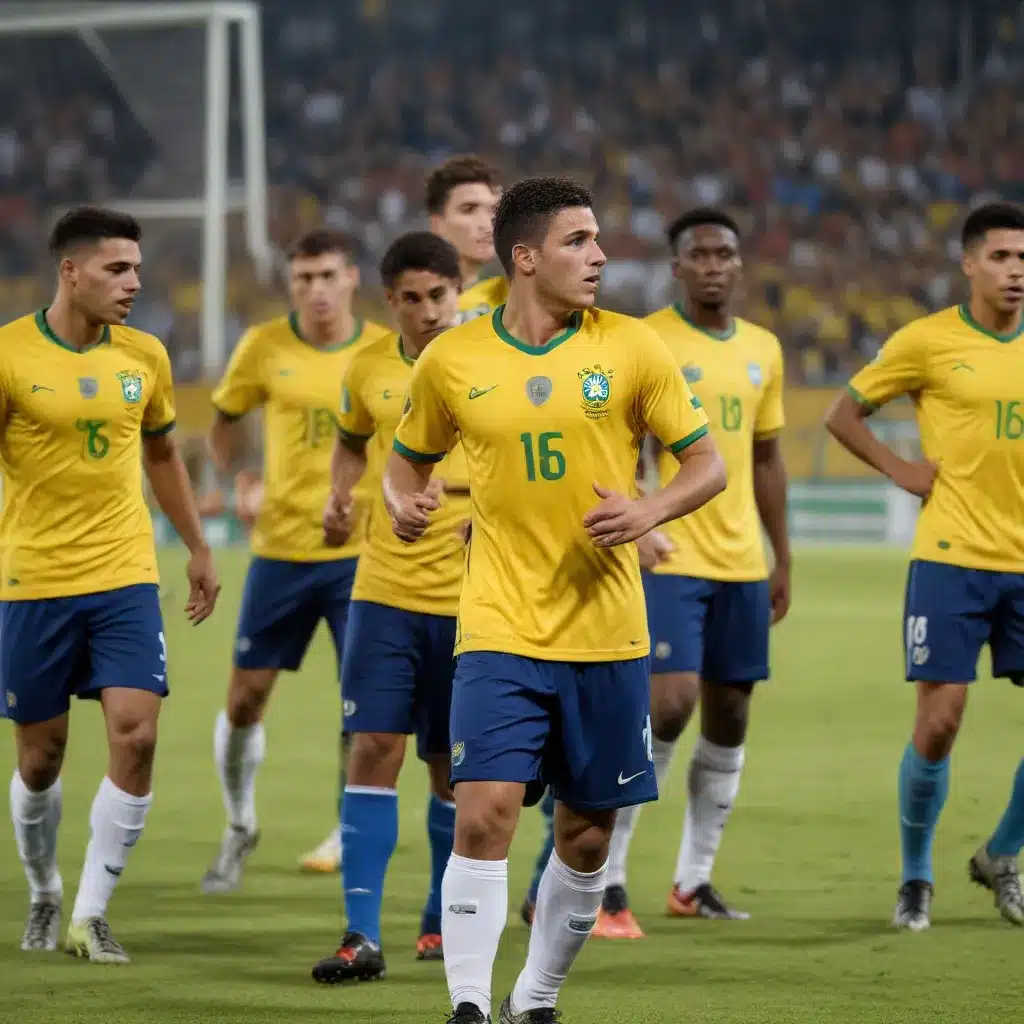
Tracing the Evolution of Player Recruitment in Brazil’s State-Level Football Tournaments
Football in Brazil
Brazil’s rich footballing heritage is deeply rooted in its state-level tournaments. These competitions, with their unique histories and passionate fanbases, have long served as the lifeblood of the country’s beloved sport. From the storied rivalries of the Clássicos to the discovery of legendary talents, the state championships have played a pivotal role in shaping the Brazilian game.
Top State-Level Competitions
The state-level tournaments in Brazil are a source of immense pride and tradition. In states like São Paulo, Rio de Janeiro, and Minas Gerais, the Campeonato Paulista, Campeonato Carioca, and Campeonato Mineiro command unwavering devotion from fans. These competitions, dating back to the early 20th century, have nurtured the careers of icons like Pelé, Zico, and Ronaldo.
The allure of these state leagues lies not only in their history but also in the intense local rivalries that captivate supporters. Clássicos like the Fla-Flu between Flamengo and Fluminense, or the Gre-Nal between Grêmio and Internacional, are eagerly anticipated fixtures that transcend the sport itself, becoming cultural touchstones for their respective communities.
Player Recruitment Practices
At the heart of these state-level tournaments lies the intricate process of player recruitment. Clubs have long employed a range of tactics to identify and nurture the next generation of talent, from traditional scouting methods to the increasing integration of data-driven analysis.
Talent Development Pathways
The state leagues have served as a crucial springboard for countless players, providing them with the platform to showcase their abilities and attract attention from the national stage. Young prodigies honed their skills in the state tournaments before making the leap to the Brasileirão, Brazil’s top-flight professional league, and even international stardom.
Evolution of Player Recruitment
The player recruitment landscape in Brazilian football has undergone a remarkable transformation over the decades, reflecting the game’s ever-evolving nature.
Historical Trends
In the past, clubs relied heavily on grassroots scouting networks, with local talent hunters combing neighborhoods and youth teams to uncover the next diamond in the rough. These scouts, often with deep connections to their communities, would identify promising players and bring them into the club’s youth academy system.
Technological Advancements
The digital age has ushered in a new era of player recruitment, with clubs embracing data analytics and cutting-edge technology to enhance their talent identification processes. Big data has become an invaluable tool, allowing teams to meticulously analyze player performance, physical attributes, and even off-field attributes to uncover hidden gems.
Modern Recruitment Strategies
As the game has evolved, so too have the strategies employed by Brazilian clubs in their pursuit of the best young talent. The modern approach is a harmonious blend of traditional scouting and innovative data-driven methods.
Data-Driven Talent Identification
Clubs have invested heavily in data analytics, leveraging sophisticated algorithms and machine learning to sift through vast troves of information. This data-driven approach allows them to identify players with the precise skills, physical profiles, and potential to thrive at the highest levels of the game.
Global Talent Sourcing
The reach of Brazilian clubs has extended far beyond their own borders, as they scour the globe for the most promising young footballers. Partnerships with international academies and scouting networks have enabled clubs to cast a wider net, unearthing talents from diverse backgrounds and providing them with pathways to the Brazilian game.
Talent Pipelines in Brazil
The state-level tournaments in Brazil have long served as the foundation for the country’s footballing success, nurturing the careers of countless legends. However, the landscape of talent development has evolved, with clubs and governing bodies implementing innovative programs to ensure a steady flow of elite players.
Youth Development Systems
At the heart of Brazil’s talent pipeline are the renowned youth academies operated by the country’s top clubs. These academies, often referred to as escolinhas, have become breeding grounds for future stars, providing young players with world-class coaching, facilities, and mentorship.
Beyond the club academies, grassroots initiatives and community-based programs have also played a pivotal role in identifying and developing talent across Brazil’s diverse regions. These programs, often supported by local authorities and non-profit organizations, have helped to bridge the gap and provide equal opportunities for aspiring footballers.
Pathways to Professional Football
The progression from state-level tournaments to the national Brasileirão and even international stardom has been a well-trodden path for countless Brazilian players. The state leagues serve as a crucial proving ground, allowing young talents to showcase their abilities and earn the attention of top-flight clubs.
For those who excel in the state championships, the next step is often a move to one of the larger, more prestigious clubs in the Brasileirão. This transition can be a transformative experience, exposing players to higher levels of competition, increased media scrutiny, and the demands of professional football.
Challenges and Considerations
While the state-level tournaments and talent development systems in Brazil have been instrumental in producing some of the game’s greatest players, the landscape is not without its challenges and complexities.
Socioeconomic Factors
The vast socioeconomic disparities that exist within Brazil have had a significant impact on the accessibility and inclusivity of the sport. Players from underprivileged backgrounds often face significant barriers, ranging from limited access to quality coaching and facilities to the financial burden of pursuing a career in football.
Regulatory Frameworks
The regulatory frameworks governing player transfers and talent protection policies in Brazil have long been a source of debate and controversy. Concerns over the exploitation of young players, the uneven distribution of wealth, and the potential for corruption have prompted calls for reform and greater oversight.
As the game continues to evolve, both on and off the pitch, the challenges facing player recruitment and talent development in Brazil’s state-level tournaments will undoubtedly persist. However, the passion, resilience, and ingenuity of the Brazilian footballing community suggest that the country will continue to be a powerhouse, unearthing and nurturing the next generation of global superstars.
For the latest updates and insights on Brazilian football, be sure to visit Brazilian-Football.com.

